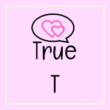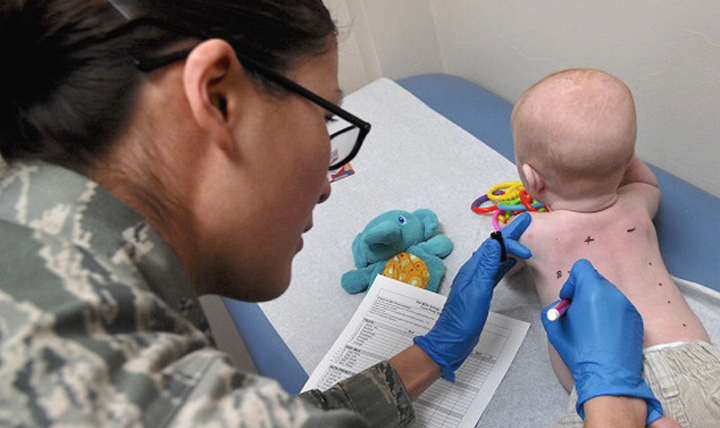One of the tasks I embarked on over the summer was to rate/reject submissions for a publisher who was holding writing competitions. I came across this woman who I will mention because she is a published writer, Susan Roos. Her book Chronic Sorrow: A Living Loss helps guide people through grief. However, I was only reading an essay of hers and in that essay, I discovered that she is a psychotherapist who lost her daughter when she was just three years old. The father was barely present and died shortly afterward. I bring this up because there are many therapists who try to comfort people without going through any traumatic events themselves. That’s not to say that you have to go through some type of trauma to become a therapist, but Susan’s recovery process was one extraordinary enough to prove that there are professionals who come from a place of pure experience.
Although she never specified how exactly her daughter died, she was sick, having seizures, and Susan said that she had a disability (again never specified). The details of her daughter’s death were so detailed with her recounting her daughter’s last look, clothes, and the doctors’ exact words. Of course, she grieved, but what shocked me was how she says that her daughter’s life did not matter to anyone but to her. Her bluntness regarding the value of her daughter’s life really touched me because when someone dies, people are so quick to put the dead on a pedestal. Additionally, she says that the lack of value her daughter had with others just illuminated and highlighted the special bond she had with her. Susan opens up about the funeral arrangements, the burial, to later decide on cremating her. But, she does it in a manner in which she’s walking the reader as to what exactly happened while appreciating the memory and the presence that her daughter will always have.
So you’re probably wondering why my title is the way it is. Well, after seeing some tweets on Twitter from moms who have kids with special needs, bullies to deal with, illnesses, side-eyed by therapists, and worse kids who are ignored by adults who don’t understand them, I decided to connect everything. Susan’s case was much more extreme as her daughter really suffered tragically from her illness more than her disability, however, she too felt that depressed by how little control she had over her beloved daughter’s life. Generally speaking, there are many things we do not have control over in life and I can just imagine the guilt a parent feels when their child might have a disability, developmental issues, illness even if they have nothing to do with it. Plus, the majority of people don’t nor won’t understand the type of suffering the child or the parent will go through. I say this because my brother had and still has developmental/behavioral issues. When he was younger, he needed a hearing aid and he spoke very little. Only until last year at the age of 24, he admitted to being bullied and I can’t help to say that my first reaction was “why didn’t you say anything?” But, looking back now, many kids are afraid to speak up or just can’t because of health-related issues. I have a cousin too who has behavioral issues which caused him to become an easy target for people to take money from in school. It’s disgusting how there are parents who can’t correctly guide their children, especially the younger ones, on how to treat others. There are now exclusions as to who can play on the playground and these days no one will say anything unless it goes viral. Being seen in the yellow bus labels you stupid while the word retarded literally equates to being stupid.
I wasn’t the nicest kid back then, but I wasn’t a bully either, more guilty of being a bystander. These schools in the Bronx are ruthless with stabbings, fights involving pregnant women, etc. But many times, you see kids with special needs being placed in these schools with no real care and the health system around here does not help the least bit. So back to my title, if you are a parent dealing with a kid who has behavioral, developmental, mental, and physical issues, I wish you the best of luck because let’s face it, you’re going to experience some stigma/internal pain. Your child won’t always have that protection, you won’t always find that person who truly understands, and it’s difficult when you have no way to voice your thoughts. It’s easier but much less feasible to say as a society we need to do xyz because society will always be harsh which is the world we live in. But as mentioned, if parents can really instill proper manners into their kids and if teachers/therapists were more aware of how to go about helping kids with special needs in an adequate manner, there will be less heartbreak from parents of special needs and less internal suffering will happen on the kid’s behalf.
In connection to Susan who again works to guide people through their stress and sorrow, I’m glad she’s open enough to share let alone write a book helping others in similar situations. No her daughter wasn’t bullied, but she kept her existence a secret in order to avoid embarrassment, guilt, and even the sympathy that reminds her of the unfortunate situation that she knew would become tragic. I brought her story up because I really feel for the mothers and fathers who have to deal with the societal/internal consequences of raising their children if they are a bit different. In reality, people are ashamed to have or admit they have an”abnormal” family. In fact, they like to paint there family life as perfect which causes other families with challenges to be seen as the outlier. The reality is that we need to drop the perfect facade and actually be aware and most importantly kind to those who are facing struggles because you never know what they are going through. It’s hard enough dealing with stares, gossip, and negative vibes. At the end of the day, these kids are still kids, humans, and I must say I commend parents who don’t let their frustrations show in front of their children, protect them, and continue to parent even with a smile on their face. And in all honesty, these kids have the most striking journey. Their accomplishments are very inspiring and as a parent, it is difficult not to feel influenced by your child. When you look back at the journey, you realize your growth and the beauty as a whole despite the challenges faced. Hopefully, at this stage, you can pat yourself on the back and realize your accomplishment/strength. My brother is far from perfect as any human is, and still have a few moments here and there. However, he’s going to college, really making a statement for the idiots who called him dumb in the past, and that alone makes me proud.

